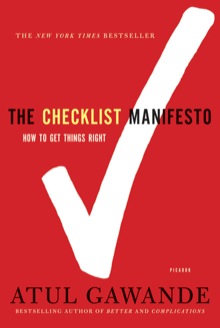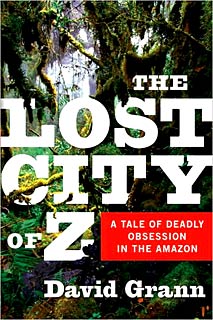This review contains affiliate links, which earn me a small commission when you click and purchase, at no extra cost to you. Thank you for supporting my small business and allowing me to continue providing you a reliable resource for clean book ratings.
Who would have ever believed that David Lee Roth (yes, of Van Halen fame) possessed the insight and intelligence of Boeing test pilots from the 1930s? Certainly not I, and Dr. Atul Gawande himself expressed delighted shock when he learned of the details of their similarities. It all boils down to complexity, or, more correctly, the ability to successfully manage extreme complexity.
Our world has amassed an unfathomable body of knowledge in an infinite number of areas. Even in the hands of highly trained and intelligent experts, it is simply not reasonable to expect any single person to be able to remember every detail all of the time. And although this certainly has day-to-day implications, consider the massive number of decisions that need to be made under duress whilst in the middle of a crisis. Whether it is surgery, flying a passenger jet, or constructing a modern high-rise, man’s abilities to understand have surpassed his capacity to keep it all straight in his head. Thus we meet the checklist, the humble sheet of paper designed to assist a pilot, a surgical team, a project manager, and, yes, even a rock star to consistently perform at a level that is simply inhuman.
Born from the ashes of a plane crash that nearly bankrupted the Boeing Airplane Company, the modern-day checklist has evolved into a crucial tool in our endeavors to generate a discipline of higher performance. The most amazing concept is how a simple list of carefully selected tasks can take a group of individuals, each highly trained in his/her own right, and transform them into a functional and successful team in less than 60 seconds.
Filled with riveting examples from medicine, aviation, construction, pubic service, and finance, this book systematically leads the reader through the checklist of developing a belief in, well, checklists. Understandably, many professionals fear that adoption of this concept will lead to a generation of mindless automatons, incapable of independent thought. A well-written checklist, however, does just the opposite: it contains only the “killer items,” those that are absolutely necessary for success. These elements are designed to stimulate team members, not to lull them into a daze of mindless belief that all is well. There is a craft to developing a truly life-saving checklist, and as one progresses through this book, we see not only how it is done, but witness the incredible results of a worldwide adoption of a single list.
Few authors have the skill to pen a truly riveting piece of nonfiction, but Atul Gawande is certainly one of them. This was not the first book of his that I have read, and I sincerely hope it is not the last. He is a gifted writer, not only for his ability to reveal hidden worlds to everyday readers, but also to make those same readers think and want to go out and persuade others to do likewise.
Rated: None. Two incidents of a single mild term, and one irreverent use of Deity.
Click here to purchase your copy of The Checklist Manifesto on Amazon.




